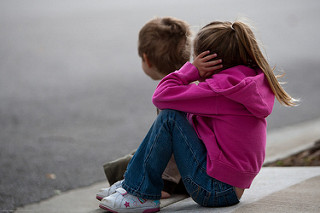What Should I Tell The Kids About Our Divorce?
If you have children and are going through a divorce, your biggest concern is likely how your kids will be affected. When is the best time to tell your children, and how much should you share with them?
Your Children Will Know
Your children will know that something is going on, and leaving them in the dark may cause more apprehension and stress in them than just being upfront. Establish a united front early in the process, and tell your children together that you are separating. Assure them that while things will be different, everything will be okay. Alleviate their fears that your divorce is in any way their faults. Remind them often during the process that everything will fine and it is not their faults.
Age Appropriate Language
The amount of information that you share with your children will depend on their ages and maturity levels. For elementary school-aged children and younger, keep the conversations simplistic. Tell them the facts they need to know, like that you and your ex will be living in separate homes, but that you are still their parents and love them. For very young children, it may be helpful to use toys to explain what is happening.
Older children usually will want to know more and will ask more questions. Answer their questions as positively as possible. No matter how bad your relationship has become with your ex, always maintain a united front when discussing your divorce with your children.
Regardless of your children’s ages, never share with them so much that they become embroiled in your divorce. They should not be forced to pick sides or to be a messenger or spy for a parent. Such behavior can have long-lasting effects on their current and future relationships. Let your children stay children for as long as possible.
Choose a Child-Focused Process
If you are mediating, you may choose to include language in your agreement as to when and how much information should be shared with your children. If you have chosen a collaborative divorce, your neutral collaborative facilitator will give you and your spouse advice about how to talk with your children. Consider retaining a child specialist, who can talk with your children and make sure that they understand what is happening and that their voices are heard. However, if you choose to litigate, you will not have these beneficial resources.
If you notice that your children are struggling with your divorce, seek the help of a professional counselor for them. Your divorce is a difficult, life-changing event for your children. It is important that you address it with them in a healthy way.
Adam B. Cordover is a collaborative attorney and Florida Supreme Court Certified Family Law Mediator. He is also author of an upcoming American Bar Association Book on collaborative family law.





